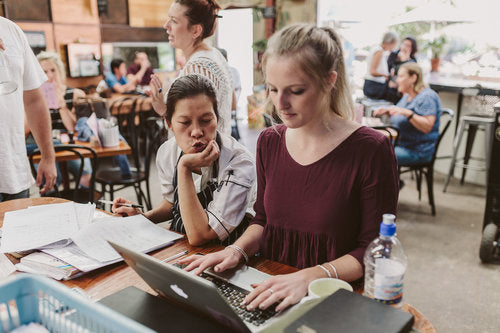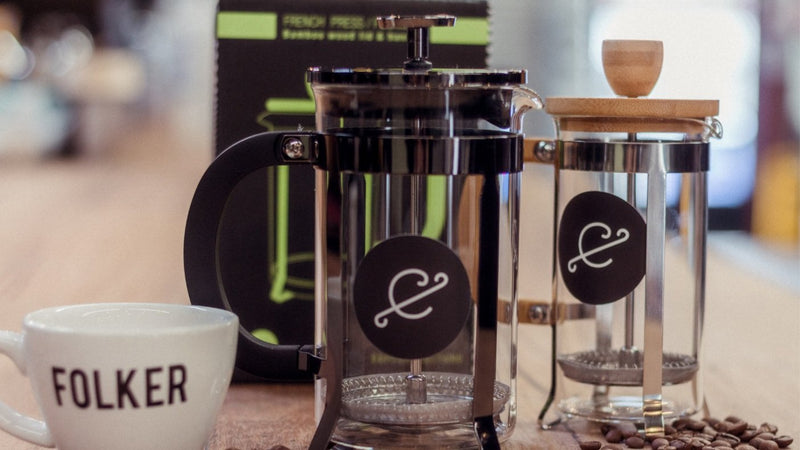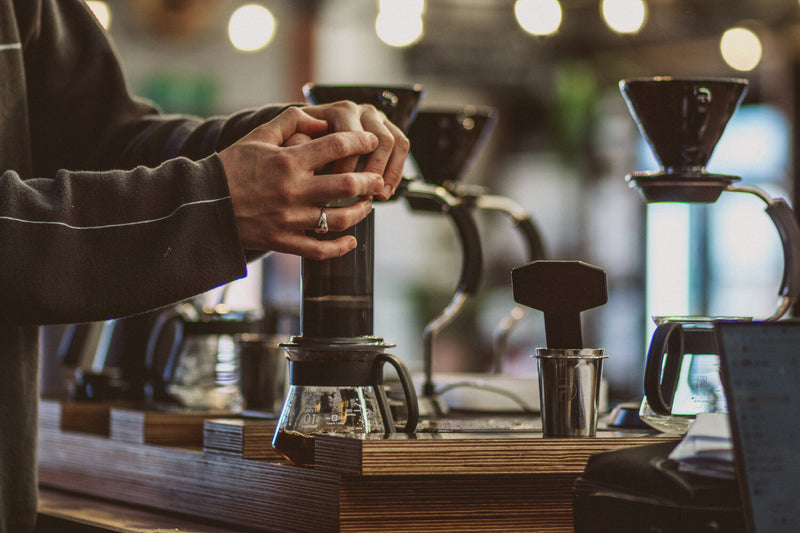At Commonfolk, we’ve always done things a little differently. We source coffee through long-term relationships, invest in our farming partners, and prioritise sustainability in everything we do. This year, we took a big step forward—we measured our organisational carbon footprint for the first time.
Through our partnership with Workiva Carbon, we conducted a carbon accounting assessment for the 2024 financial year. This process gave us an honest look at our impact—where our emissions come from, what we’re already doing well, and where we have opportunities to do better. It was humbling, eye-opening, and challenging, but it’s also something we’re incredibly proud of.
How We Measured Our Carbon Footprint
To ensure our carbon accounting was accurate, transparent, and aligned with global best practices, we followed the Greenhouse Gas (GHG) Protocol—the world’s most widely used standard for measuring and managing emissions. The GHG Protocol provides a structured, standardised approach that allows businesses to track and report emissions consistently, ensuring that our data is credible and comparable across industries.
Using Workiva’s platform, we were able to systematically account for our emissions across all areas of our operations. Workiva integrates real-time data collection, verified emissions factors, and automated calculations, making it easier to measure, analyse, and report our impact with confidence.
Our emissions are categorised into three categories
-
Scope 1 (Direct Emissions): Emissions from sources we own or directly control, such as the gas used in our kitchens and coffee roasting process.
-
Scope 2 (Indirect Energy Emissions): Emissions from purchased electricity used to power our venues, roastery, and offices.
-
Scope 3 (Value Chain Emissions): All other indirect emissions associated with our business—such as green coffee production, packaging, shipping, staff travel, and even merchandise.
One of Workiva’s strengths is its ability to automate complex Scope 3 calculations, which is critical for a business like ours, where the majority of our carbon footprint comes from supply chain activities. We were able to link supplier data, apply verified emissions factors, and uncover hidden emissions hotspots across our operations.
By following this structured, data-driven approach, we now have a clear, audit-ready footprint that not only helps us take responsibility for our emissions but also informs our long-term sustainability strategy.
Our Total FY '24 Emissions: 929.77 MT CO₂e

After months of gathering data—from energy bills to supplier reports—we calculated that Commonfolk Group produced 929.77 metric tonnes (MT) of CO₂ equivalent (CO₂e) in FY24.
That’s a big number, and seeing it laid out was a sobering moment. However, it also highlighted that we’re already making some good choices in our broader sustainability program:
-
We partnered with carbon-neutral suppliers, like Sendle for deliveries, which impacted our transport related emissions.
-
Our solar panels generated 34,403.40 kWh of electricity, covering over 20% of our total power use.
-
We’ve made waste-conscious packaging changes, switching to kerbside recyclable coffee bags and reducing single-use plastics.
Where Do Our Emissions Come From?
 Our biggest sources of carbon emissions fell into the following categories:
Our biggest sources of carbon emissions fell into the following categories:
-
Green Coffee – The emissions from growing, processing, and shipping coffee beans.
-
Energy Use in Our Cafes & Roastery – The power and gas used to run our operations.
-
Packaging & Freight – The materials we use and the transport needed to get coffee to our customers.
-
Equipment & Merchandise – The production and servicing of coffee machines, grinders, and merchandise.
The Biggest Opportunities to Reduce Our Footprint
While offsetting emissions is an important step (more on that below), the real goal is reducing our footprint wherever possible. We now have a clearer picture of where our emissions come from and where we can make meaningful, long-term changes. Some solutions are immediate, while others will require gradual implementation over the coming years, but every decision we make is a step towards a more sustainable future.
One of the biggest and most immediate changes we can make is exploring a transition to 100% renewable electricity across all our operations. Right now, some of our energy comes from fossil fuels, contributing to our Scope 2 emissions. By making the switch with our energy retailers, we can drastically cut our emissions overnight, reducing the footprint of everything from roasting coffee to brewing espresso. We would still depend on the energy grid for most of our power, but it would be sourced from renewable energy.
Logistics play a major role in our emissions footprint.
While we’re already making progress by partnering with carbon-neutral delivery services like Sendle, our own fleet of vehicles—which we use for deliveries, service calls, and general business operations—still runs on petrol and diesel.
We know that transitioning to electric vehicles (EVs) is the future, and as infrastructure and affordability improve, we’re committed to gradually replacing our fleet with EV alternatives. However, we also recognise that this can’t happen overnight. In the meantime, a practical and immediate step is to prioritise more fuel-efficient vehicles whenever replacements are necessary. By choosing low-emission models, we can reduce fuel consumption and emissions in the short term while preparing for a full shift to electric in the long term.
Every week, our cafes and roastery generate food waste—coffee grounds, kitchen scraps, and other organic materials.
Traditionally, much of this would end up in landfill, creating methane emissions and contributing to climate change. Thanks to a Mornington Peninsula Council grant, we’re rolling out a food waste dehydrator system that will turn our scraps into fertiliser rather than waste. This means nutrient-rich organic matter can be reused in gardens and farms rather than adding to landfill emissions. Not only does this cut our Scope 3 waste emissions, but it also strengthens our commitment to a circular economy—where waste is repurposed rather than discarded.
We’ve already switched to recyclable coffee bags and compostable cups and lids, but there’s always more to do. One area we’re improving is the packing filler we use when shipping coffee and equipment. Instead of buying new, single-use packaging materials, we’re investing in a cardboard shredder that will let us repurpose used cardboard into protective filler. This small change will reduce our reliance on new materials and ensure that more waste is reused rather than discarded.
Not all of our emissions are within our direct control.
A significant portion came from Scope 3 emissions—especially those tied to green coffee production. While we can’t dictate global farming practices, we can use our influence to advocate for change. More importantly, we can choose who we partner with—and we intentionally work with producers who share our values and are committed to responsible and sustainable farming.
This means:
-
Encouraging sustainability among our suppliers, ensuring that our farming partners have access to resources that help them reduce emissions.
-
Investing in long-term sustainability projects, like those through Zukuka Bora’s endemic shade tree nursery, that help restore ecosystems and support carbon-friendly farming practices.
-
Pushing for industry-wide accountability, working alongside other coffee roasters to champion better environmental standards across the supply chain.
What We Didn’t Measure (Yet)
Carbon accounting as a small business is complicated, and while we tried to be as thorough as possible, some things were left out of this first assessment.
For example, we didn’t measure the commute emissions for our casual café workers. Given the nature of hospitality, where shifts vary daily, tracking every staff member’s mode of transport would have been logistically impossible. However, we did include the commute and work-related travel for our roastery and admin teams.
As we refine our process in future years, we’ll continue improving our data collection to make our footprint even more accurate.
Offsetting Our Emissions
While reducing emissions is our ultimate goal, we also take responsibility for what we still produce. That’s why we’re offsetting our footprint through Eco Trust Uganda’s Trees for Global Benefits program, a reforestation and conservation initiative that actively removes CO₂ from the atmosphere while supporting local communities.
By purchasing over 1,000 carbon credits, we’re going beyond neutrality—Commonfolk Group is now carbon-positive, offsetting more emissions than we generate. But this isn’t just about numbers; our investment directly funds tree planting, ecosystem restoration, and financial support for smallholder farmers adopting sustainable land practices in Uganda. The offsets we purchase are not only sequestering carbon but also improving biodiversity and strengthening the very same farming communities that produce our coffee. The credits were officially purchased and retired, as certified for both the Commonfolk Group and our subsidiary Kua Coffee.
What’s Next?
Carbon accounting isn’t a one-off task—it’s an ongoing process of learning, adjusting, and finding better ways to operate. Understanding our footprint has helped us see where we can make meaningful changes, and we’re committed to taking steps in the right direction.
In the year ahead, we’ll be looking at ways to increase our use of renewable energy, explore more fuel-efficient vehicle options, and continue reducing waste in our operations. We’re also actively exploring ways to minimize our overall energy consumption—whether through more efficient equipment, improved processes, or smarter energy management. Beyond our own footprint, we recognize the importance of supporting our farming partners in their sustainability efforts and using our role in the industry to encourage broader improvements across the supply chain.
This process has shown us just how complex and interconnected emissions are, and there’s no single, easy solution. But what we can do is keep refining, keep improving, and keep looking for ways to make a positive impact.
To everyone who shares a coffee with us, thanks for being part of this journey. The choices we make—both as a business and as a community—shape the future of coffee, and we’ll continue working toward a more sustainable way forward.
 Cart
Cart



